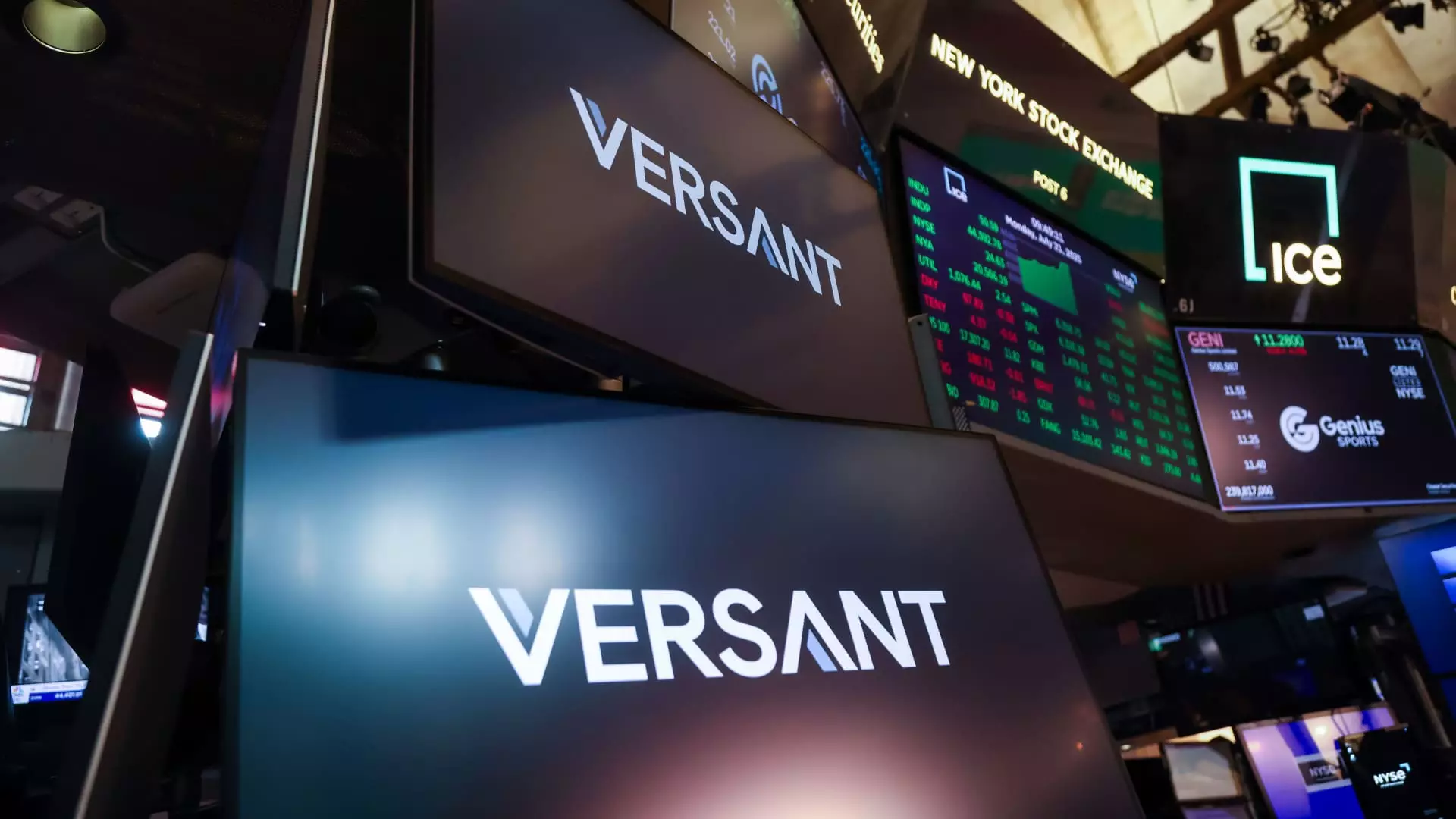While Comcast’s announcement of its planned spinout, Versant, may appear as a strategic move aimed at unlocking value, it subtly reveals deeper ambitions and contradictions within the media conglomerate. At first glance, spinning off NBCUniversal’s cable networks and digital assets might seem like a logical step towards specialization and agility. But a closer, more cynical analysis suggests it is a gamble driven by a desire to deflect scrutiny, reduce oversight, and carve out a more entrepreneurial niche for a select group of influential individuals. The question remains: does this maneuver genuinely empower innovation and competitiveness, or does it merely serve to mask deeper structural weaknesses and strategic misalignments?
The composition of Versant’s board underscores an intriguing mix of industry veterans, financial experts, and media insiders. Their collective experience spans traditional media, high finance, arts, and emerging technology sectors — a deliberate blend designed to wield influence across multiple domains. The appointment of figures like David Novak, a master at brand transformation from his Yum Brands days, signals an intent to leverage branding prowess to reposition the network assets. Yet their diverse backgrounds also highlight an underlying skepticism: can such a disparate group effectively chart a cohesive, forward-looking course without the backing of a larger corporate safety net? It’s a risky bet on leadership’s ability to innovate while balancing existing legacy assets versus forging new digital frontiers.
Potential Winners and Losers: A Center-Right Perspective on Media Power
From a center-right liberal standpoint, this move sparks both cautious optimism and sharp concern. On one hand, the separation could herald a more competitive environment, liberating certain media properties from the bureaucratic constraints of a giant corporate structure. This could foster a more entrepreneurial atmosphere conducive to premium content creation, strategic partnerships, and targeted investments in emerging technologies like AI and digital streaming. The fact that Versant is positioning itself not just as a traditional media operator but as a digital hub with assets like Fandango, Rotten Tomatoes, and SportsEngine suggests an awareness of shifting consumer behaviors and the importance of technological adaptation.
However, the risk is that this spinout may serve the interests of powerful financiers and media moguls more than the broader public good. With key figures like Gerald Hassell from the banking world and Len Potter from biotech finance, the emphasis appears to lean toward consolidating financial interests rather than fostering truly diverse and independent media voices. The commodification of media assets under such governance raises questions about accountability, transparency, and the potential for increased consolidation at a different corporate level. Without strict oversight, this could deepen the influence of big money into what once was a more democratized media landscape.
Innovation or Entrenchment? The Future of Media After the Spinout
Turning away from orthodox assumptions, one might argue that Versant’s formation could be an innovative step, provided it maintains a clear strategic vision aligned with the public interest. If this new entity commits to transparency, fair competition, and the production of diverse, high-quality content, it could serve as a model for a more resilient and adaptable media ecosystem. A focus on harnessing AI, data-driven storytelling, and high-quality journalism could elevate the industry beyond its current fragmentation and partisan biases.
Yet, the reality is that the power dynamics behind such a move tend to favor the elite, favoring investor returns over cultural or societal enrichment. The presence of high-profile corporate board members with backgrounds in finance, law, and brand management suggests a tendency toward optimizing metrics rather than fostering authentic dialogue or civic engagement. The question then becomes whether Versant will prioritize shareholder value over journalistic integrity and public service. If history is any indicator, the odds favor a future where corporate interests dictate content and strategic priorities, rather than the public’s need for informed citizenship.
In the context of a rapidly changing media environment, the Versant spinoff embodies both the promise and peril of corporate restructuring. From a pragmatic, center-right perspective, it signals a possibility for quicker adaptation, innovation, and economic growth within the media industry. Yet, it also raises critical doubts about accountability, diversity, and the concentration of influence. As media consumers and stakeholders, the challenge remains to scrutinize not just what companies spin off or merge, but how these decisions shape the very fabric of information, culture, and public discourse over the coming years. The stakes are high, and the path forward will test whether the industry can strike a balance between entrepreneurial agility and societal responsibility.

